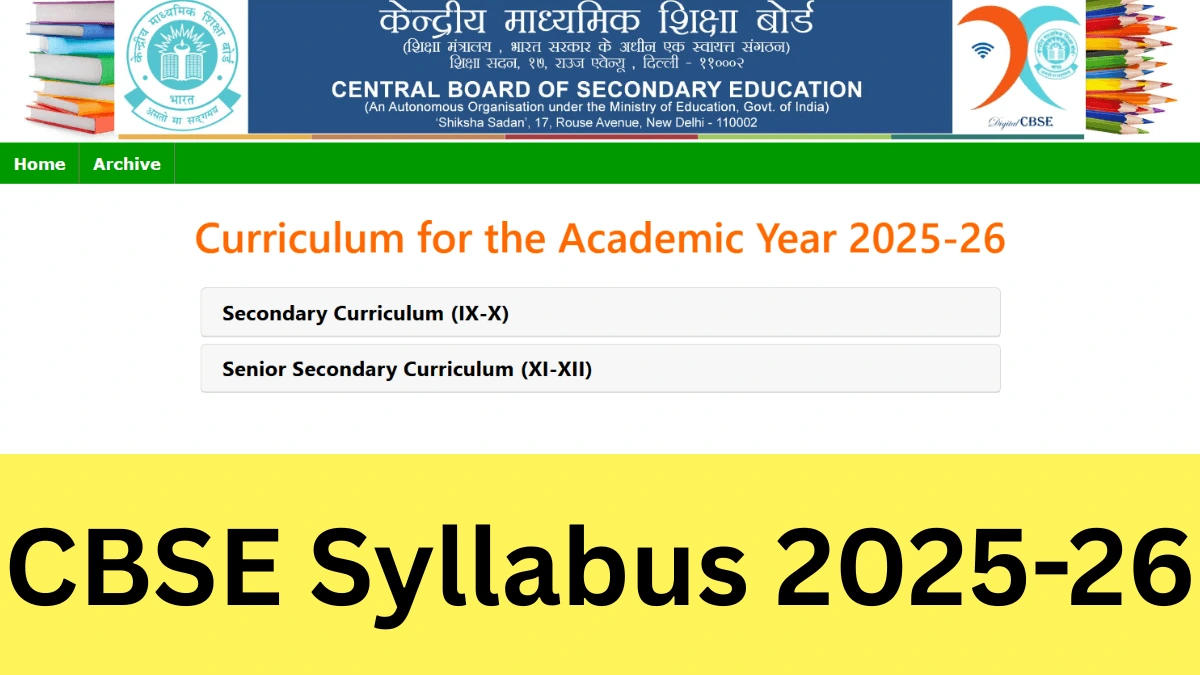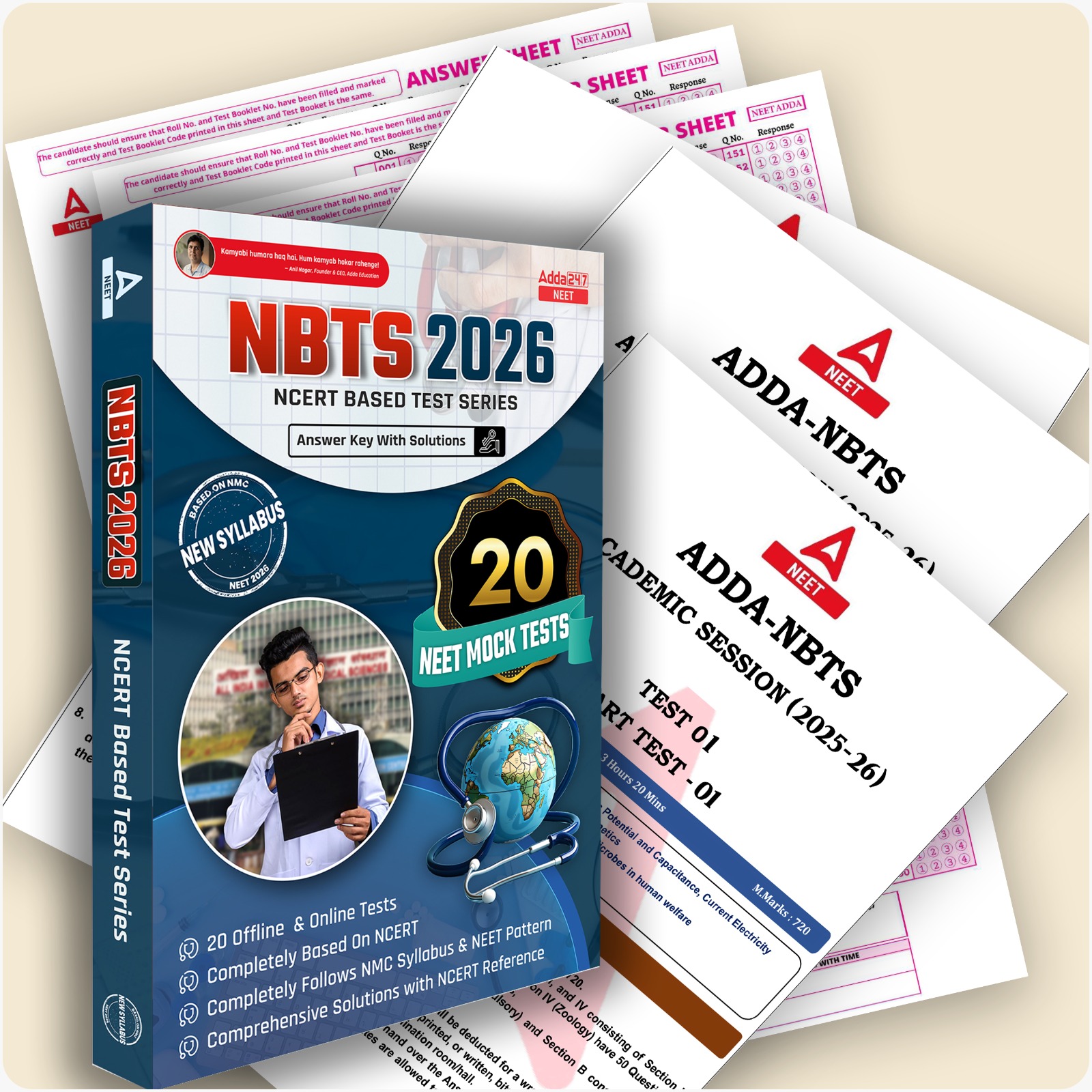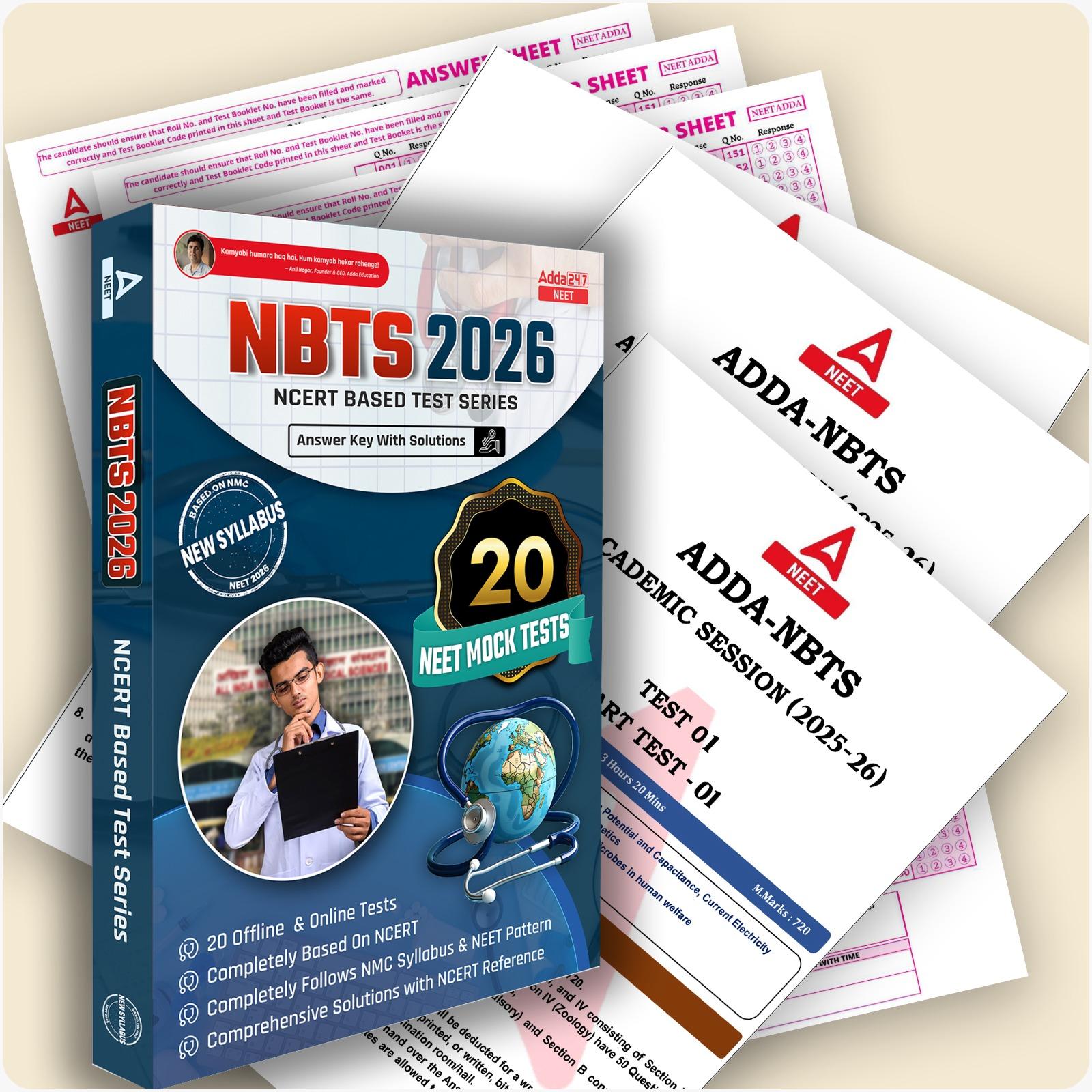The Central Board of Secondary Education has released the CBSE syllabus 2025-26 for classes 9, 10, 11, 12 on its official website. The CBSE new syllabus is available for download at cbseacademic.nic.in. The revised curriculum, now available to all associated schools, offers a well-organized guide for educational instructions from Classes IX to XII. We have provided the direct link to download the CBSE syllabus 2025-26 below.
CBSE Syllabus 2025-26 Out
The Central Board of Secondary Education (CBSE) has published the curriculum for Classes 10 and 12 for the academic year 2025-26. The revised curriculum specifies academic content by subject, desired learning outcomes, suggested teaching methods, and assessment guidelines for students in Classes 9 through 12. The CBSE has directed schools to adhere closely to the guidelines outlined in the initial pages of the curriculum.
CBSE Syllabus 2025-26 Download Link for Classes 9, 10, 11, 12
The CBSE has issued the official syllabus in the beginning of the academic year 2025-26 so that every student, teacher and schools can follow it for better results. Students can download the subject-wise CBSE syllabus 2025-26 for classes 9, 10, 11, 12 by clicking the direct link given below.
CBSE Class 10 Syllabus 2025-26 PDF Download
Below we have provided the CBSE Class 10 subject-wise PDF download link for language, main and other subjects. Make sure to go through the official syllabus of your subject.
CBSE Class 12 Syllabus 2025-26 PDF Download Subject-wise
Students can download the official CBSE Class 12th syllabus 2025-26 for language and academic elective subjects below.
| CBSE Class 10th Syllabus 2025-26 PDF |
| Main Subjects |
| Language Subjects |
|
Other Subjects
|
| CBSE Class 10 Syllabus 2025 for Other Academic Electives (Group A2) |
CBSE Class 12 Syllabus 2025-26 for Language Subjects
|
CBSE 12th Language Subjects Syllabus 2025-26 PDF Download Link
|
CBSE Class 12 Syllabus 2025-26 for Academic Elective Subjects
| CBSE 12th Academic Electives Subjects Syllabus 2025-26 PDF Download Link |
CBSE Syllabus 2025-26: What the Board Said in its Notification
While releasing the syllabus, the CBSE board said, “Subjects should be taught in alignment with the prescribed syllabus, integrating experiential learning, competency-based assessments, and interdisciplinary approaches to enhance students’ conceptual understanding and application.”
The board further added, “Schools should also prioritize collaborative lesson planning to ensure that teaching strategies remain dynamic, inclusive, and future-ready.”
CBSE Directives to Schools on Latest Syllabus
The board has recommended that schools adopt contextualized and adaptable teaching methods to address various learning requirements, following the guidelines outlined in the National Curriculum Framework (NCF) 2023. CBSE has mandated that schools must firmly follow the instructions specified in the curriculum document.
Educational institutions are expected to adopt creative teaching methods while adhering to the set curriculum. The board has highlighted experiential learning, assessments based on competencies, and interdisciplinary teaching methods to strengthen students’ analytical and problem-solving skills, preparing them for real-life challenges.
New CBSE Syllabus 2025-26 to Redefine Learning
As the educational landscape evolves, CBSE is urging schools to implement student-focused teaching methods in accordance with the National Curriculum Framework-2023 (NCF-2023). Essential teaching approaches encompass:
- Project-Based Learning: Involving students in practical problem-solving tasks that reflect real-world situations.
- Inquiry-Drive Education: Encouraging curiosity by motivating students to investigate, inquire, and examine ideas from various viewpoints.
- Technology Integrated Learning: Employing AI-powered tools, online platforms, and electronic learning materials to boost participation and accessibility.
- Collaborative Lesson Planning: Motivating educators to continuously improve methods to meet changing educational requirements.
CBSE Syllabus 2025-26 Introduces New Assessment Model
CBSE has revamped its assessment framework to focus on competency-based evaluations rather than on rote memorization. Schools are urged to create assessments that evaluate critical thinking and analytical abilities, helping students gain a more profound comprehension of concepts. The innovative method seeks to connect theoretical understanding with practical implementation, enhancing students’ readiness for advanced education and career opportunities.
Will CBSE Conduct Board Exam Twice from 2025-26
Last month, CBSE published the draft plan for holding board exams for Class 10 students biannually starting in 2026. If put into effect, this will introduce several significant modifications to the existing system.
- The examination fee will rise and will be gathered when schools present the Lists of Candidates (LOCs) for board exams.
- The board will not provide any passing certificate after the initial exam. If students miss the second examination, they can utilize the performance information available via DigiLocker for Class 11 admission. Certificates of passing will be granted only following the outcome of the second exam.
- Even though there will be two theory tests, the board will carry out just one practical exam/internal evaluation.
- Students who fail the initial exam may be granted provisional admission to Class 12, with their enrollment being confirmed depending on their results from the second examination.









 CUET General Test Syllabus 2026 (Latest)...
CUET General Test Syllabus 2026 (Latest)...
 CUET Chemistry Syllabus 2026, Download O...
CUET Chemistry Syllabus 2026, Download O...
 CUET Agriculture Syllabus 2026, Exam Pat...
CUET Agriculture Syllabus 2026, Exam Pat...










